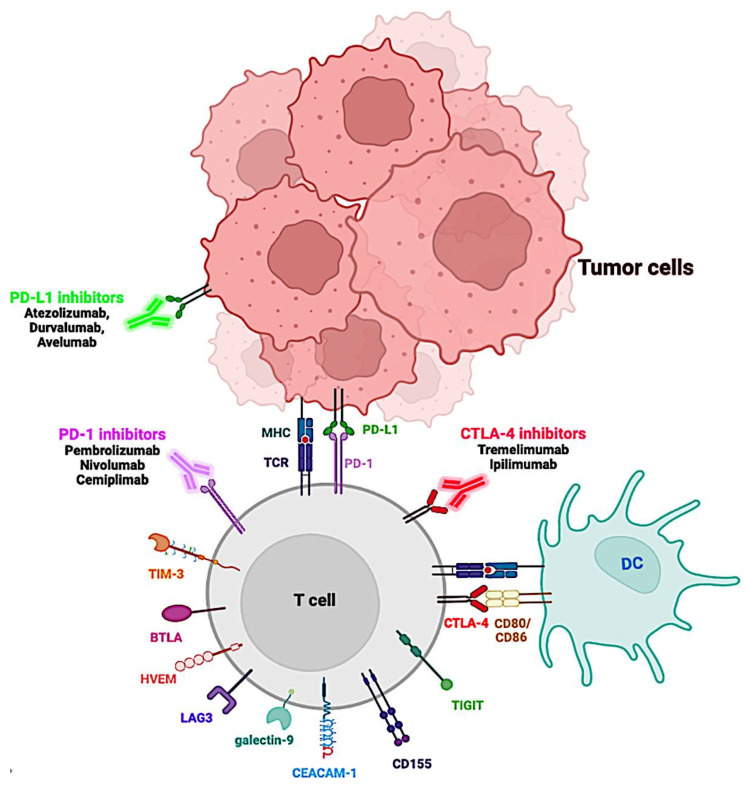Figure 2.
FDA-approved immune checkpoint inhibitors as a therapeutic intervention in cancer. T cells are activated through antigen presentation by major histocompatibility complex (MHC) molecules on the surface of tumor cells or on antigen-presenting cells (APC) such as dendritic cells (DC), recognized by the T cell receptor (TCR). Activated T cells will upregulate the expression of co-inhibitory cell surface receptors such as PD-1 and CTLA-4. Binding of PD-1 to its ligands, PD-L1, or PD-L2, will inhibit signaling downstream of the TCR, thus downregulating T cell activity. Antibody therapies that target PD-1 or PD-L1 can reactivate exhausted T cells at the tumor location, increasing their activity and allowing T cells to destroy tumor cells. Binding of CTLA-4 to its ligands, B7, CD80, or CD86, suppresses T cell activity. By blocking CTLA-4 interaction with anti-CTLA-4 antibodies, T cell proliferation will be activated. Created with Bio.Render.com.

